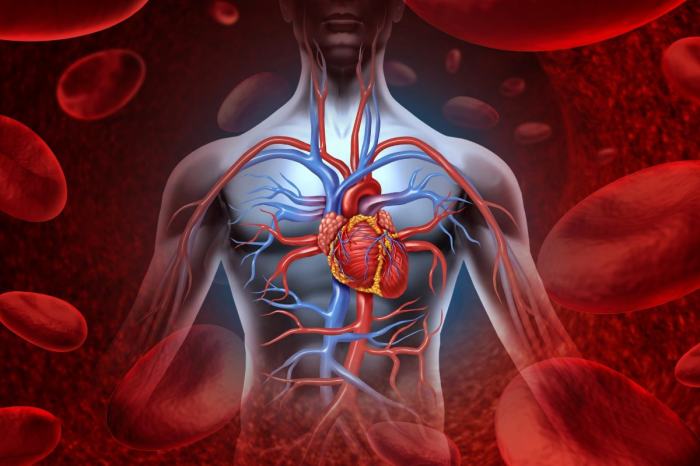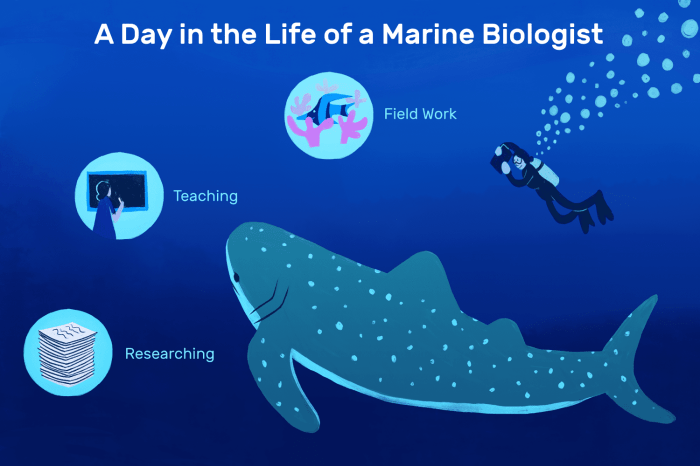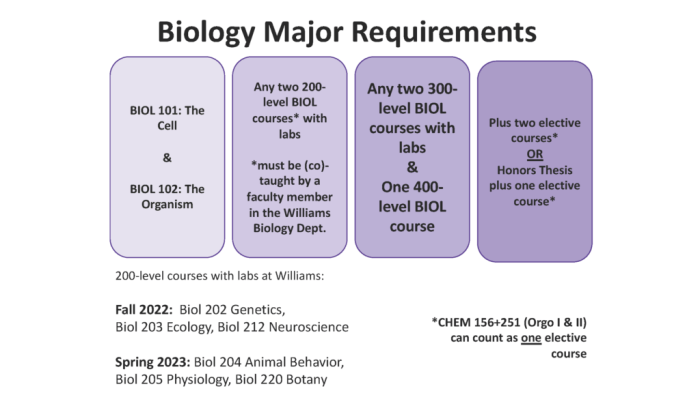Is principles of biology hard – Delving into the intricacies of Principles of Biology, we embark on a journey to unravel its perceived difficulty. Is it a formidable challenge or an accessible gateway to the fascinating world of life sciences? Join us as we explore the factors that shape its reputation and uncover strategies to navigate its complexities.
This comprehensive guide delves into the course’s scope, objectives, content, and assessment methods. We’ll shed light on the unique features that set it apart from other introductory biology courses and examine its relevance to future academic and career aspirations.
Course Overview
The Principles of Biology course provides a comprehensive introduction to the fundamental concepts and principles that govern living organisms. It aims to equip students with a solid understanding of the biological world, from the molecular and cellular level to the interactions between organisms and their environment.
The course is designed for students with a strong interest in biology who are seeking a foundation for further studies in the field or related disciplines. It assumes a basic understanding of chemistry and physics, as these concepts provide the foundation for understanding biological processes.
Target Audience
The Principles of Biology course is primarily intended for undergraduate students majoring in biology, pre-health professions, or other science-related fields. It is also suitable for students who are curious about the natural world and seek to gain a deeper understanding of the principles that govern life.
Prerequisites
To succeed in the Principles of Biology course, students should have a strong foundation in chemistry and physics. A basic understanding of these subjects will provide the necessary background for comprehending the complex biological concepts covered in the course.
Course Content

The Principles of Biology course provides a comprehensive overview of the fundamental concepts and principles that govern the study of life. It covers a wide range of topics, each of which plays a significant role in understanding the diversity, complexity, and interconnectedness of living organisms.
The major topics covered in this course include:
Cell Biology
Cell biology forms the foundation of biology, as it explores the structure, function, and behavior of cells, the basic units of life. It provides insights into the fundamental processes that occur within cells, such as metabolism, protein synthesis, and cell division.
Molecular Biology
Molecular biology delves into the molecular basis of life, focusing on the structure and function of biological molecules, such as DNA, RNA, and proteins. It explores the mechanisms by which genetic information is stored, transmitted, and expressed, providing a deeper understanding of heredity and genetic disorders.
Genetics
Genetics examines the inheritance and variation of traits in living organisms. It investigates the patterns of inheritance, the structure and function of genes, and the mechanisms of genetic recombination and mutation. Genetics has significant implications for understanding the evolution of species and the genetic basis of human diseases.
Evolution, Is principles of biology hard
Evolutionary biology explores the processes that drive the diversity and adaptation of life on Earth. It examines the mechanisms of natural selection, genetic drift, and speciation, providing insights into the origins of species and the history of life on our planet.
Ecology
Ecology investigates the interactions between organisms and their environment. It examines the distribution, abundance, and behavior of organisms within ecosystems, as well as the factors that influence their survival and reproduction. Ecology has important implications for understanding the impacts of human activities on the environment and developing strategies for conservation.
Course Difficulty

The perceived difficulty of the Principles of Biology course can be attributed to various factors. These include the vast amount of information to be covered, the complexity of biological concepts, and the analytical and critical thinking skills required to comprehend the material.
Students may also face challenges due to their prior knowledge, learning styles, and time management abilities.
The principles of biology can be a bit tricky, but don’t worry, it’s not like trying to solve the “all of them witches anagram” here . With a little effort, you’ll be able to grasp the fundamentals of biology in no time.
Challenges and Obstacles
Some specific challenges and obstacles that students may encounter in Principles of Biology include:
- Volume of Material:The course covers a broad range of topics, from cell biology to ecology, requiring students to absorb and retain a significant amount of information.
- Complexity of Concepts:Biological concepts can be intricate and interconnected, involving multiple levels of organization and processes. Students may struggle to grasp the relationships between different concepts and to apply them to real-world scenarios.
- Analytical and Critical Thinking:Principles of Biology requires students to analyze data, interpret results, and evaluate scientific evidence. This can be challenging for students who are not accustomed to scientific reasoning or who have difficulty applying abstract concepts to concrete examples.
- Prior Knowledge:Students with a strong background in biology may find the course easier, while those with limited exposure may struggle to catch up. Prior knowledge in chemistry and physics can also be beneficial.
- Learning Styles:Students with different learning styles may find certain aspects of the course more challenging. For example, those who prefer hands-on activities may struggle with lectures, while those who excel in theoretical concepts may find laboratory exercises less engaging.
- Time Management:The volume of material and the pace of the course can make it difficult for students to keep up with the workload. Time management skills are crucial to ensure students can allocate sufficient time for studying, completing assignments, and preparing for exams.
Comparison to Other Biology Courses

The Principles of Biology course offers a comprehensive introduction to the field of biology, providing a solid foundation for students pursuing further studies in the life sciences. Compared to other introductory biology courses, it stands out in several key aspects.
One unique feature of the Principles of Biology course is its emphasis on the process of science. Students are actively engaged in the scientific method, learning how to formulate hypotheses, design experiments, collect and analyze data, and draw conclusions. This hands-on approach fosters critical thinking skills and a deep understanding of the nature of scientific inquiry.
Advantages of the Principles of Biology Course
- Strong emphasis on the process of science, fostering critical thinking and research skills.
- Comprehensive coverage of biological concepts, providing a broad foundation for further studies.
- Integration of real-world examples and case studies, making the learning experience more relevant and engaging.
- Qualified and experienced instructors who are passionate about teaching biology.
Disadvantages of the Principles of Biology Course
- Can be challenging for students with limited science background.
- May not provide sufficient depth in specific areas of biology for students interested in specialization.
- Course pace can be demanding, requiring consistent effort and dedication.
Overall, the Principles of Biology course offers a well-rounded introduction to the field of biology, equipping students with a solid foundation for further studies or careers in the life sciences. Its emphasis on the process of science and integration of real-world examples make it a valuable choice for students seeking a comprehensive understanding of the subject.
Course Evaluation

The Principles of Biology course employs a comprehensive assessment system to evaluate student learning and academic progress. This system incorporates various methods to ensure a fair and accurate evaluation of student understanding and application of biological concepts.Grading Criteria and Expectations:Grading in the Principles of Biology course is based on a combination of assessments, including exams, assignments, and participation.
Each assessment type carries a specific weight in determining the final grade. Exams, typically consisting of multiple-choice questions, short answer questions, and essay questions, assess students’ comprehensive understanding of the course material. Assignments, such as research projects, presentations, and problem-solving exercises, evaluate students’ ability to apply their knowledge to practical scenarios and demonstrate critical thinking skills.
Participation, which includes attendance, engagement in discussions, and contributions to group projects, reflects students’ active involvement in the learning process.Regular Feedback and Self-Assessment:Regular feedback is provided to students throughout the course to help them monitor their progress and identify areas for improvement.
Feedback is given through graded assignments, quizzes, and instructor comments. Students are encouraged to actively seek feedback by asking questions during lectures, attending office hours, and reviewing their graded work. Self-assessment is also an important aspect of the course evaluation process.
Students are encouraged to reflect on their learning and identify areas where they excel and areas where they need additional support. This self-assessment process helps students take ownership of their learning and make informed decisions about their study strategies.
Course Resources

The Principles of Biology course provides students with a range of resources to support their learning. These resources include textbooks, online materials, videos, simulations, and laboratory equipment.
The course textbook is a comprehensive guide to the major concepts of biology. It provides detailed explanations of biological principles, as well as examples and case studies to help students understand how these principles apply to the real world.
Online Materials
In addition to the textbook, the course also provides students with access to a variety of online materials. These materials include:
- Interactive simulations that allow students to explore biological concepts in a hands-on way.
- Videos that provide clear and concise explanations of key concepts.
- Web links to additional resources, such as articles and websites.
Videos
The course videos are a valuable resource for students who want to learn more about biology. The videos are produced by experts in the field and provide clear and concise explanations of key concepts.
Simulations
The course simulations allow students to explore biological concepts in a hands-on way. The simulations are designed to be interactive and engaging, and they can help students to understand how biological principles apply to the real world.
Laboratory Equipment
The course laboratory equipment is used to teach students how to conduct scientific experiments. The equipment includes microscopes, balances, and other tools that are essential for biological research.
Course Outcomes

Upon successful completion of the Principles of Biology course, students will achieve several important learning outcomes:
Firstly, students will gain a comprehensive understanding of the fundamental principles of biology, including the structure and function of cells, genetics, evolution, and ecology. This foundational knowledge will provide them with a solid base for further study in biology or related fields.
Application of Biological Principles
Secondly, students will develop the ability to apply biological principles to real-world problems and make informed decisions based on scientific evidence. Through hands-on experiments, case studies, and discussions, students will learn to analyze data, formulate hypotheses, and test their predictions.
Relevance to Future Goals
Thirdly, the course will prepare students for future academic and career goals in biology or related fields. The skills and knowledge acquired in this course are essential for success in higher-level biology courses, graduate programs, and various careers in the biological sciences.
FAQ Corner: Is Principles Of Biology Hard
Is Principles of Biology a prerequisite for other biology courses?
Yes, Principles of Biology often serves as a foundational course for subsequent biology courses, providing a comprehensive overview of the field.
What are the main challenges students face in Principles of Biology?
The course’s breadth of content, technical terminology, and emphasis on critical thinking can pose challenges for some students.
How can students overcome the perceived difficulty of Principles of Biology?
Regular studying, active participation in class, seeking help from instructors or tutors, and utilizing available resources can enhance understanding and mitigate challenges.
